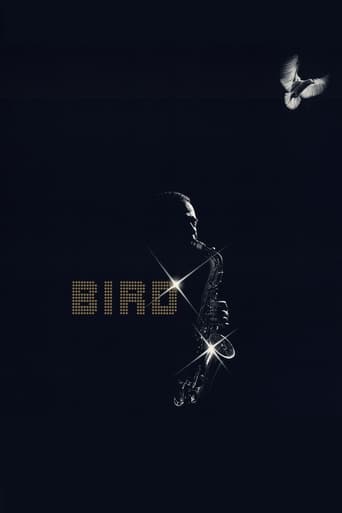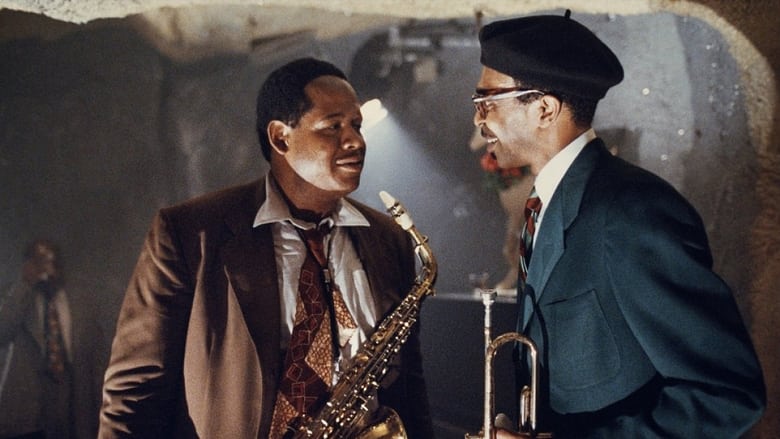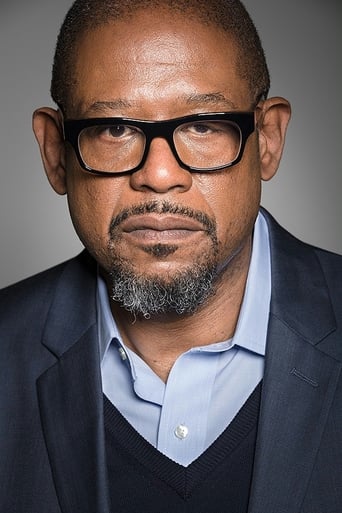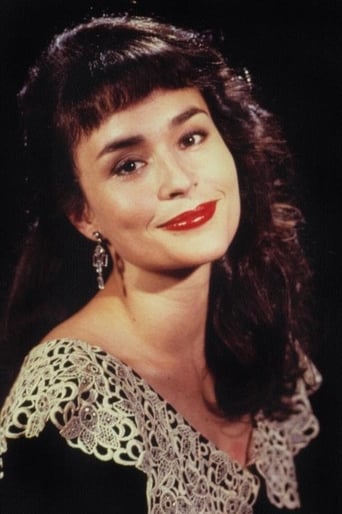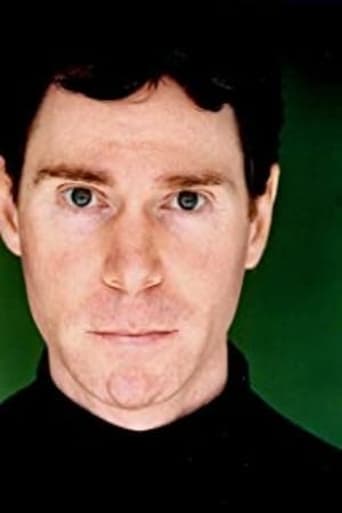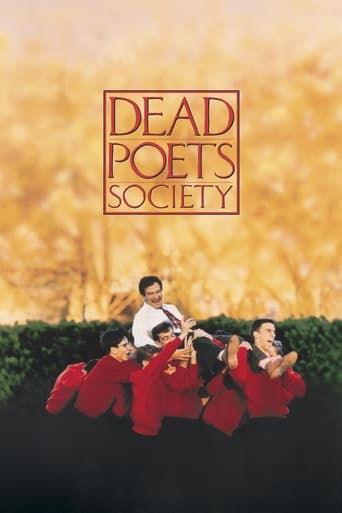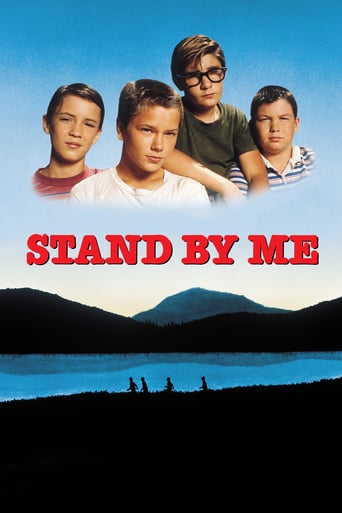Bird (1988)
Saxophone player Charlie ‘Bird’ Parker comes to New York in 1940 and is quickly noticed for his remarkable way of playing. He becomes a drug addict but his loving wife Chan tries to help him.
Watch Trailer
Cast
Similar titles
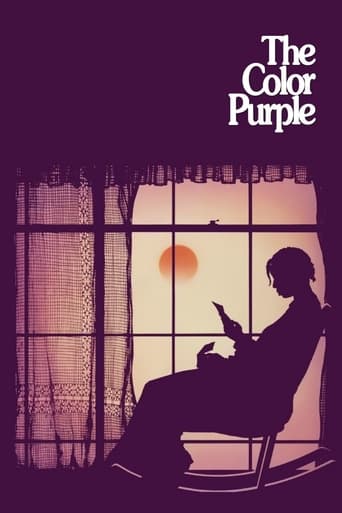


Reviews
I love this movie so much
Sorry, this movie sucks
So much average
An old-fashioned movie made with new-fashioned finesse.
Miles Davis said "You can tell the history of jazz in four words: Louis Armstrong. Charlie Parker." I bet Armstrong is the one all jazz non-experts will immediately think of... and I'm no jazz expert.I wish I was but I'm not... but what even my feeble ear could gather from Clint Eastwood's "Bird" is that Parker's music was jazz all right but something more... or let's just say something else. It doesn't exactly ring a bell but it reminds me of the kind of music we hear everyday, it's modern but jazzy enough to fly above today's modernity. The word "Bebop" wasn't used in the film, I got it from Wikipedia but I don't want to be technical in a field I don't master. I'll say with all humility that I liked the music, no matter the branding.But it's one thing to make a movie about a musical genius and another to show you the psychological struggles of the artist. Oh, he wasn't misunderstood and his talent was acknowledged by his peers but the man, how to put it, took himself in a path of self-destruction that is hard to understand. The film doesn't imply that the drugs he took to ease the pain of his ulcers influence his style but they didn't impair his talent either, substance abuse was as much part of his legend as the cymbal thrown at his feet in that humiliating day where he couldn't adapt to the chords changes of tunes.The flying cymbal is used as a poetic leitmotif symbolizing Bird's epiphany, the pivotal moment where he decided to work his way out, not to become the best, but to be able to adapt to every possible tune. I don't know what it means technically but I can tell it means a lot of work, in fact, the kind of work that is so overwhelming in content that it ends up opening new breeches of creativity. Parker would become so good he'd invent new forms of improvisations, new sounds that were pivotal in the evolution of jazz music. And he was loved and admired by his peers, the audience and the woman who was his number one fan, Chan Parker. The relationship between Chan and Charlie is like nothing you've seen before, it's so complex and unpredictable that it can only be real, it's full of heart, passion, tragedy and the same dedication to music. She knew him from a friend, "is he cute?" she asked, "no, but you're gonna like him". I said I was no musical expert but sometimes, I could just tell how good Parker was from the eyes of Chan, he had won her from the start and the courting phase of their relationship was only a matter of 'how to put it'. Chan was still frustrated that a man with such a capability of creativeness could be so lacking in basic interactions. But there's no doubt he's the man of her life, no matter how many conquests he had. And that's a key aspect of Parker's life, people 'forgave' him, drugs, women, coming late, not honoring his schedules, if anything, his talent was his one saving grace. And Dizzy Gillespie (Joe E. Wright), third major 'player' in the film, realizes Parker is destroying himself with drugs and lack of structure, but he also knows that jazz is the kind of music that needs these destructive souls, he knows Parker will die earlier, and will be a legend, but Bird's a martyr while he's a reformer, jazz needs both, constructors and "deconstructors", leaders and drifters, music needs rules and freedom.And "Bird" is a fascinating non-linear immersion in the drifting of one of jazz' most blessed souls, from his spectacular debut to his slow downfall and the way he never ceases to attract crowds and fans, there's a wonderful sequence set in the Old South where he took a Jewish saxophonist Red Rodney (Michael Zelniker) and presented him as an albino, it's for touches like this or the jazz playing during the Jewish wedding that you realize how life isn't a matter of the number of years you lived but how they're lived. When Parker's own life ends, the coroner states his age at 64, he was thirty years too many, but many lives are longer yet with a lesser legacy.I said that I didn't want to use data from websites for this review but one bit of information I found interesting is that there was no visual footage of the artist, so Eastwood had to use recordings and adapt them electronically to the movie so the sound we could hear would really come from Parker's old records (some borrowed from Chan Parker herself). That's how te film won the Oscar for Best Sound and it says a lot about the perfectionism that drove Eastwood, you know when he makes personal movies, he always hits the right chord, ever since "Play Misty for Me", Eastwood showed that he took music personally and the film ends with a fitting dedication to all the musicians in the world.I shouldn't say musicians in the world, because sometimes musicians recreate the world through the movement of their fingers, lips or the infinite brain capacity to adapt, Parker was known to have an intellectual approach to the music and even without perceiving it, I could understand it... and admire it. "Bird" is a movie that can make you feel such abstractions and I think it has a lot to do with the powerhouse performances of both Forest Whitaker and Diane Venora, snubbed by the Oscars and I mean it."Bird" is a rather dark film, mostly set at a nighttime but there's a fire burning inside, and for all the sadness carried in Parker's eyes, we know that there's joy and lust for life devouring his heart. Time to end this review before I sound too corny, but watch "Bird" is a solid jazz drama and a fine tribute to one of the best...
Biographies are a hard genre to capture on film. Books can give layers upon layers of detail into someone's life, based on multiple perspectives. And even documentaries have more of an opportunity through interviews and archive footage to establish a person's background and contributions to their art form. But how do you honorably condense a person's life down to the standards of conventional cinema, especially if that person was as unconventional as Jazz icon Charlie Parker? Clint Eastwood's "Bird" opens with a quote from F. Scott Fitzgerald, "There are no second acts in American lives." After a brief scene with no dialogue depicting Parker's childhood in Kansas City, the film flashes forward to a suicide attempt about six months before his actual death in 1955. This opening sequence establishes the tone of the film, depicting the complicated relationship between Parker and his common law wife, his drug addiction, and the music that he gave to the world. It is from this point that the film takes an interesting approach, telling most of its story in episodic flashbacks, floating around through different time periods, and even the occasional flashback within another flashback, further playing with the idea of time and memory. It is through this nonlinear approach that the film most resembles the art form that it is representing."Bird" mostly depicts Parker's life with his common law wife Chan Parker and his relationship to musicians Dizzy Gillespie and Red Rodney, all of whom gave their input during the production process. Chan, whose unpublished memoirs heavily influenced the screenplay, provided Eastwood with rare live recordings of Parker for the film. One of the movie's greatest accomplishments is its detail to the time period. In one of the film's most remarkable moments, the camera in one long take follows a club doorman up and down 52nd Street, making you feel like you are in the 1940s world of Bebop. You practically get lost in the darkly lit nightclub scenes with the air full of smoke and music.The two lead performances are extremely captivating. Forest Whitaker balances several different moods in his portrayal as Bird, conveying how charming and interesting he was to the outside world while also showcasing the pitfalls of drug addiction, and how it eventually made him an unreliable performer. He also does a convincing job at mimicking Parker's stage presence, especially his ability to improvise on the saxophone. Equal praise must go to Diane Verona as Parker's companion later in the life, establishing a cool persona in the early days of their relationship, and an overbearing sadness during its final months. The scene depicting their last phone conversation, with Verona trying so hard to mask her awareness of what's happening and eventually breaking down is heartbreaking.Still, with its Jazz-like approach to the narrative, "Bird" comes off as slightly overlong. It is still filled with nice moments and wonderful scenes. When touring in L.A., Bird stops outside the house of Igor Stravinsky, where the two geniuses stare at each other from a distance. This is juxtaposed nicely with an early scene of Parker and Chan's courtship, dancing in a fancy club with white Jazz musicians who stop playing because they recognize the legend in front of them, perhaps embarrassed by the second rate compositions they're playing. What might be the film's best scene comes near the end with Gillespie and Parker on a beach at night. The former tells the latter that while he's trying to be a progressive, Parker is too busy trying to be a martyr. "People always seem to remember the martyr more," Gillespie laments. Oh how right he was!
Given that Clint Eastwood is, famously, an ardent jazz enthusiast, he should be commended for producing a film that manages to maintain some dramatic balance. It could be so easy to cobble together a hagiographic sequence of people being astonished and fawning at Charlie Parker's virtuosity and daring. Certainly, Eastwood uses the extraordinary extant recordings to great effect, illuminating pivotal moments both for Parker and his friends, colleagues and acolytes alike. Yet we also get the tawdriness, insecurity, filth, recklessness and pain, stripped of the romanticism that retrospect would otherwise confer on it.Sorry to say, I think that Eastwood does succumb to some indulgence. It's clear that he garnered considerable information from Parker's widow Chan. The scenes with Chan (well-played by Diane Venora) are too many and clog the drama, in deference to her contribution. The film is too long, despite its incorporation of the cultural changes of an America in the middle of the previous century. The well-constructed 'flashback' style sequences of heightened realism should have been sufficient to allow us space to breathe and reflect on his situation - as Parker himself is doing in those moments.Forest Whitaker's fine, hectic-yet-tempered re-creation of this most incandescent of musicians is as good as his Oscar-winning Idi Amin. The key is that he connects up all the mood lurches. One can tell that abandon, even self-destruction isn't far away, even as he plays. Yet the sequences of clear sobriety are not conducted by a Dr Jekyll whose Mr Hyde has been excised; the shadow - and the guilt - lingers.I appreciated Eastwood's adherence to the neon-fringed chiaroscuro of Parker's nocturnal existence (i.e. 52nd Street). The editing of the film is also nicely judged. If only the director had had the daring to really cut the film back and give us a BeBop-blast of a biopic. 5/10
The life of Charlie Parker is Christ-like, to the point of dying at the age of 34. Clint Eastwood does not insist on his youth and origins. He concentrates on the mature musician from the moment he gets into the profession (with a cabaret card) to the moment when he dies and gets out of it, still with his cabaret card, at least in his dying heart. Charlie Parker represents a very typical case. The musician is stepping out of real life with his music. He steps into another world where the weight of the body and the ethics of the mind do not exist any more, and that's why his music is luminous and so entrancing. We are literally swallowed up by that swinging force because it is from an out world that is beyond pure comprehension and that is only to be enjoyed. But to produce that joy, that beauty and that light the musician has to burn his own life slowly but surely till death ensues. Alcohol, tobacco, drugs, wild living and no regularity at all, insanity too of the psychotic type quite often are the companions and the tools of this musician and even the few friends he meets along the way, both other musicians, or women and men who just love him are not enough to stop the fire that consumes him, especially because without that consumption that burns him inside out he would not be able to play music, to compose music, to create music. Clint Eastwood really renders that psychotic world with a force and a power that makes the film too short even if it were two hours longer. We would like to just drown in that music and in that soul that feeds us that music as if it were the honey of paradise and the blood of life. But every single drop he gives us is a drop he loses in his veins. Till they are dry and the heart empty. A musician is always in a way committing a self-sacrifice of his life on the altar of our pleasure.Dr Jacques COULARDEAU, University Paris 1 Pantheon Sorbonne, University Paris 8 Saint Denis, University Paris 12 Créteil, CEGID
